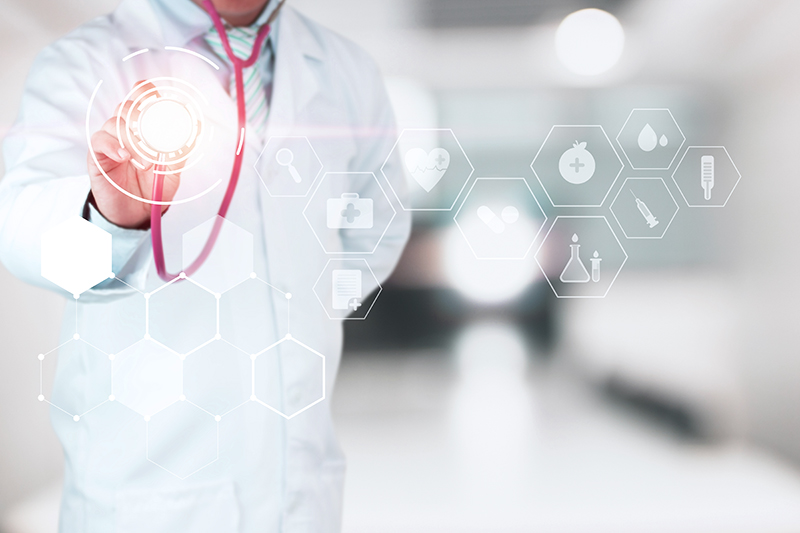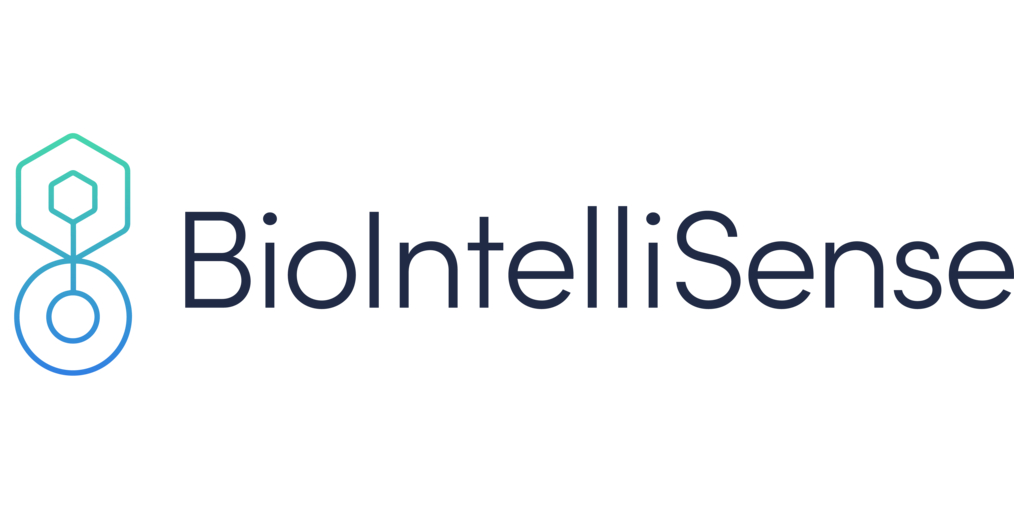Benefits
73%
of deterioration events detected early50%
reduction in time to take vitals manually9
hour shorter average stay for medical-surgical patientsOverview
BioIntelliSense is reimagining patient monitoring, both in and out of the hospital. The company uses analytics powered by artificial intelligence (AI) to help clinicians detect adverse trends in vital signs to enhance patient outcomes. Traditional telemetry systems have become cost prohibitive at scale and pose technical challenges for hospitals. Additionally, many hospitals face staffing shortages and seek to alleviate the burden on nurses. Typically, nurses take vital signs four times per day while patients are in the hospital, which is insufficient for a comprehensive assessment of a patient’s evolving condition.
To help hospitals use cloud resources to drive a more proactive model of care, BioIntelliSense turned to Amazon Web Services (AWS) to build a comprehensive patient-monitoring system.

About BioIntelliSense
BioIntelliSense is a pioneer in patient monitoring and clinical intelligence. Its Food and Drug Administration–cleared BioButton device captures vital signs and sends data automatically to the BioDashboard interface for near real-time insights.
Opportunity | Using AWS for Secure, Efficient Patient Monitoring for BioIntelliSense
Based in Denver, BioIntelliSense provides health-monitoring and clinical-intelligence solutions that are built to adhere to rigorous security and compliance standards. “Our value is providing insights for our customers,” says Josh Miller, chief operating officer at BioIntelliSense. “If hospitals catch deterioration early, there are easier interventions that can help save a lot of time, cut costs, and improve outcomes.”
In 2020, BioIntelliSense introduced the BioButton device, a coin-sized wearable sensor that provides 24/7 near real-time monitoring of patients in clinical settings or at home. The device automatically captures up to 1,440 measurements per patient per day, including heart rate, respiratory rate, sleep data, skin temperature, and body position. This data is then transmitted to the company’s BioCloud platform, which detects patterns in patients’ vital signs using AI to inform proactive clinical interventions. Clinicians use BioIntelliSense’s BioDashboard interface to review the data at the nurse’s station and central monitoring centers.
BioIntelliSense selected AWS as its cloud provider to help meet local data residency and compliance requirements as it scales globally. The company operates in multiple AWS Regions and relies on the AWS Shared Responsibility Model for the security of its cloud-based systems. In the United States, BioIntelliSense complies with HIPAA and aligns its architecture on AWS with requirements of the National Institute of Standards and Technology, ISO 27000, and SOC 2. “We have built our solution on AWS so that we can deploy securely and replicate our model from site to site across the country and internationally,” says Marshal Dhillon, senior vice president of engineering at BioIntelliSense.
Solution | Detecting 73 Percent of Patient Deterioration Events Early
The BioButton device measures a patient’s vital signs once per minute and transmits the data automatically every 10–15 minutes via a Bluetooth gateway. Minute-level and hourly median values are visible in the BioDashboard interface, which helps clinicians visualize patient trends and provides data-driven insights that are powered by AWS. The BioDashboard interface runs on Amazon Elastic Compute Cloud (Amazon EC2), which provides secure and resizable compute capacity for virtually any workload. “We spin up compute efficiently, get the outputs to the right people, and then spin it back down when not needed,” says Dhillon. “Our whole technology stack is owned and developed by BioIntelliSense, and AWS is a big part of that.”
On AWS, BioIntelliSense experiences minimal downtime when it releases software updates or new features. Additionally, rather than have to set up infrastructure for each hospital, the company can quickly onboard customers to its cloud-based offerings.
The BioButton device and BioDashboard interface can save significant operational costs for hospitals, revolutionizing how hospital systems manage patients and staffing. In a peer-reviewed, retrospective study published in the Journal of Clinical Medicine, researchers found that the use of the BioButton device and BioDashboard interface could help clinicians detect 73 percent of patient deterioration events within 24 hours in medical-surgical units. “Minutes often count in patient safety,” says Miller. “This kind of earlier intervention can mitigate an unplanned transfer to the intensive care unit and potentially save lives.”
Moreover, hospitals that used the BioButton device and BioDashboard interface greatly reduced the volume of notifications to fewer than one notification per patient per day, an order of magnitude less than that of traditional monitoring systems. Plus, BioIntelliSense’s system accurately quantifies critical patient data that previously relied on observation, such as respiratory rate.
Using the BioDashboard interface, nurses spent 50 percent less time taking vital signs and could monitor patients centrally so that patients could sleep undisturbed during recovery. In addition, the system helps clinicians see which patients are stable, supporting decision-making on discharges and reducing length of stay. Hospitals that used BioIntelliSense’s system reduced the average length of stay for patients in medical-surgical units by 9 hours over 15 months, according to the Journal of Clinical Medicine study.
Outcome | Pioneering a Proactive Model of Patient Care
In October 2024, the Food and Drug Administration cleared the BioButton device, BioCloud platform, and BioDashboard interface for multipatient use, providing economies of scale for hospitals that are concerned about logistics and supply chain challenges for single-use devices. One clinician can now monitor hundreds of patients simultaneously using the BioDashboard interface and make more proactive clinical decisions that improve patient outcomes.
To further enhance care, BioIntelliSense plans to incorporate generative AI into its offerings through the use of Amazon Bedrock, a fully managed service that offers a choice of high-performing foundation models from leading AI companies. Using Anthropic’s Claude in Amazon Bedrock, BioIntelliSense can create summaries of patients’ medical histories for nurses to view through the BioDashboard interface. The company will build its generative AI applications on AWS HealthLake, a HIPAA-eligible service that can securely store, transform, transact, and analyze health data in minutes.
“We now look at data not only with humans but through algorithmic analysis to detect subtle patterns that could signal when a patient is heading in the wrong direction,” says Miller. “With our system built on AWS, we are moving from a reactive model of care to one that’s much more proactive.”

With our system built on AWS, we are moving from a reactive model of care to one that’s much more proactive.
Josh Miller
Chief Operating Officer, BioIntelliSense